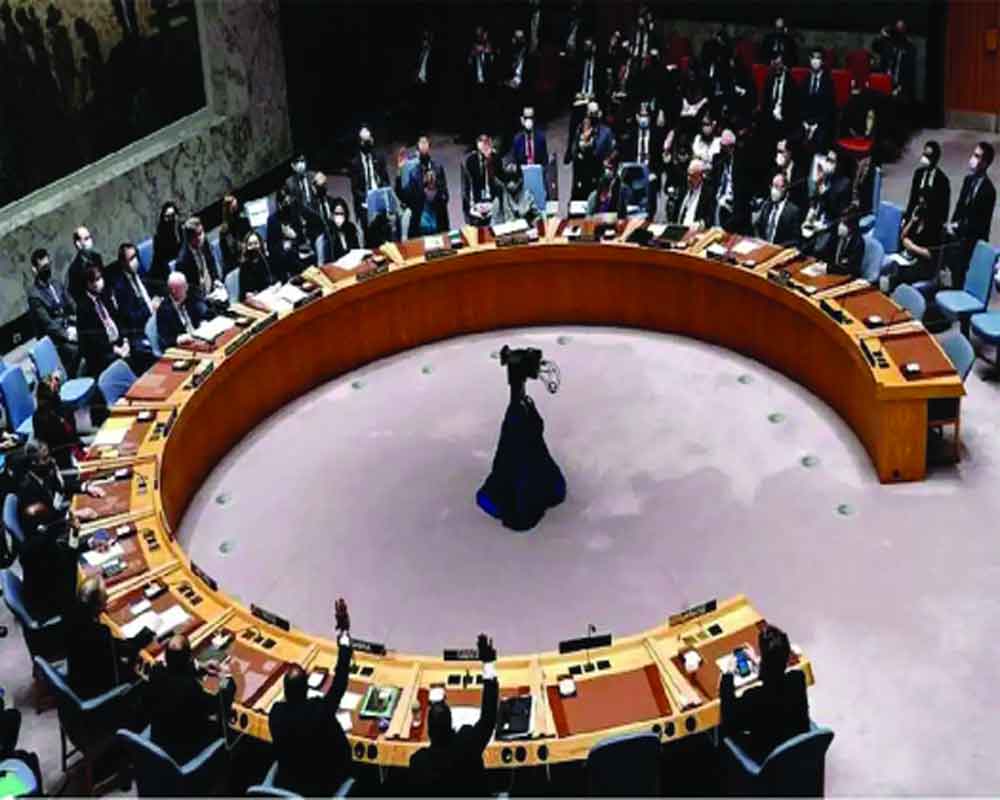India’s abstention at the UNSC resolution against Russia sends out conflicting signals
Why did India abstain from a US-sponsored resolution of the UN Security Council that deplored Russia’s aggression against Ukraine? China, a permanent member of the Security Council, and the UAE, also abstained, but the internal debate in India remains largely focused on the country’s stand. India’s stand is consistent and balanced, the Government argues. The logic is India’s abstention allows it to continue talking to both sides; that is, aggressor Russia and victim Ukraine. In keeping with the balanced stand, Prime Minister Narendra Modi spoke with Russian President Vladimir Putin as well as Ukrainian President Volodymyr Zelenskiy. He called Putin for “an immediate cessation of violence” and “return to the path of diplomatic negotiations and dialogue”. He told Zelenskiy who called him for “an immediate cessation of violence” and “a return to dialogue”. Curiously, the Government’s message to both sides is similarly worded. For, it is for Russia to stop the aggression and not Ukraine, the aggrieved party. Congress, India’s main Opposition party in Parliament, preferred not to react. It claims to refrain from voicing a contrary stand on international crises for the sake of India putting up a united face. That did not stop some of its leaders like Shashi Tharoor and Manish Tewari to argue the Government should have unequivocally supported Ukraine. Tewari suggested that while Russia backed India during crisis times, “when a friend commits a mistake, it needs to be corrected”.
BJP’s vice-president formally defended the abstention because India believes in dialogue and diplomacy. He even distinguished between the abstentions of India and China saying, to quote a news agency, “We are not like China, which abstained with a message which seems like advocating for war.” However, neither the United States nor Russia objected to India’s abstention. Moscow lauded India’s “balanced” stand. The US said, “We understand, it is okay.” What it left unsaid was unambiguously articulated by two Democrat Congressmen. Indian-American Congressman from California Ro Khanna outlined the American perspective tweeting, “It is the US, not Russia, that will stand with India against China’s current expansionist plans.” His colleague, Congressman Eric Swalwell said, “Khanna and I represent the largest Indian-American districts and this vote is contrary to what we hear from our constituents.” So, where do we stand on this abstention? A lot is already being written about it but two things must be kept in mind. First, a nation’s policies will always be at variance with its citizens’ sentiments because of the big-picture-small-picture binary. Secondly, most probably, coming-of-age India is only now directly involved in a big-ticket Security Council vote on a global security matter. It missed out on the experience during Kargil and Iraq wars because it was not part of the Security Council (as non-permanent member) then. It is, now, till 2023. Still, it may want to ponder why the world appears more concerned about the implications of China’s abstention even as it takes India’s abstention as nothing out of the ordinary.


























